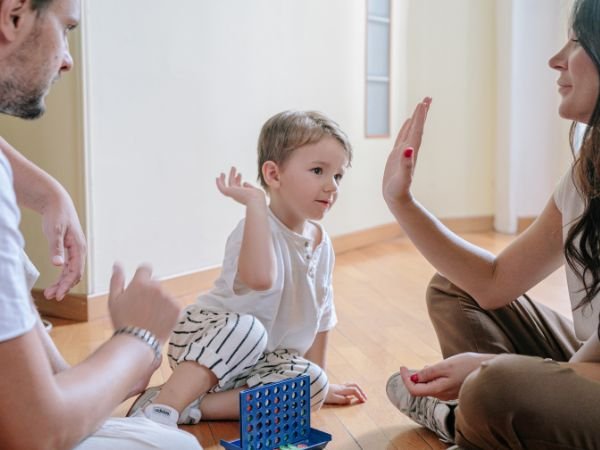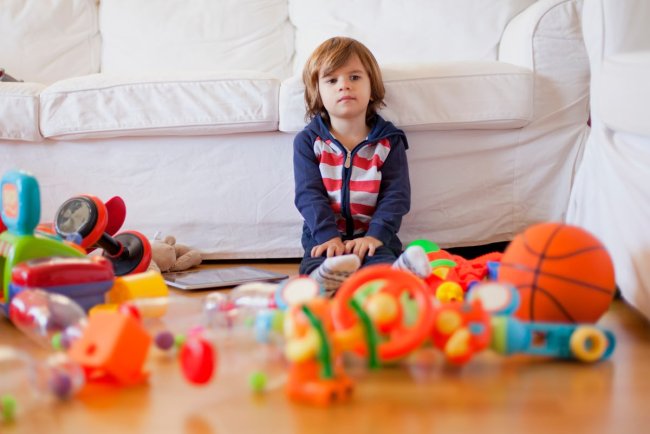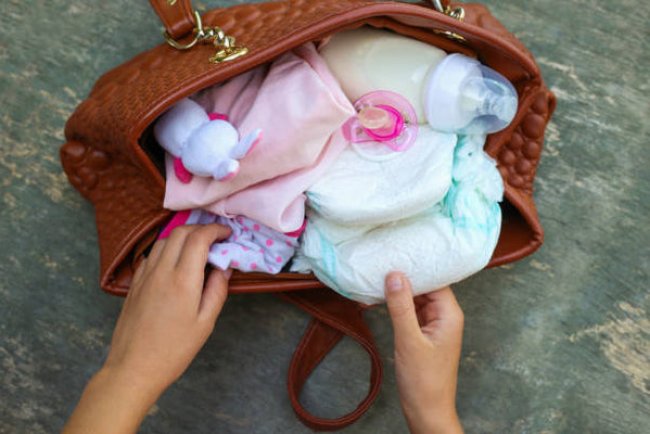Authoritarian Parenting: Strict Rules or Stifling Creativity?
Unlock the secrets of Authoritarian Parenting: Strict Rules or Stifling Creativity? Discover the impact of strict rules on a child's creativity. Uncover the delicate balance between authority and fostering creative expression.

Introduction
Parenting styles have been discussed and debated for generations. While there is no single "right way" to raise children, different approaches can have varied effects. Authoritarian parenting emphasizes obedience, respect for authority, and conformity through strict rules and discipline. However, some argue this style may repress a child's individuality and inhibit creative thinking. This complex issue deserves thoughtful consideration from all sides.
As a parent myself, I have struggled with finding the right balance between structure and flexibility. While rules provide security, too much control could undermine a child's ability to think independently. In this post, I will explore both perspectives on authoritarian parenting by reviewing relevant research and anecdotal experiences. My aim is to have an open and understanding discussion, recognizing that all parents want what is best for their kids. Ultimately, small adjustments within moderation are often most effective to foster healthy development.
Defining Authoritarian Parenting
Authoritarian parenting is characterized by high demands for compliance paired with low warmth and responsiveness. These parents place significant emphasis on obedience and respect for authority figures like themselves. Discipline tends to be strict through punishment focused on infractions rather than positive reinforcement of good behaviors. Choices and independence are limited, while conformity to absolute standards is expected without much explanation given.
Some key aspects that define the authoritarian style include:
- Strict rules and expectations for behavior that are not to be broken. Rules are non-negotiable.
- Heavy focus on obedience, respect, tradition and order through rigorous discipline like punishment.
- Limited independence and self-direction given to children. Parents decide most activities.
- Emotional responses are withheld and affection may be conditional upon good behavior. Criticism is common.
- Children's individual interests are often not prioritized or encouraged if they conflict with the parents' goals.
- Rationales for rules are generally not explained, just enforced consistently without opportunity for discussion.
- Independence and creativity are seen as less important than respect, discipline and practical skills.
How Authoritarian Parenting May Affect Creativity
Critics argue the authoritarian style can potentially undermine a child's ability to think independently and exercise creativity due to its strict controls and lack of autonomy. Some key ways this has been suggested include:
- Frequent punishment or threat of punishment may cause children to fear taking risks or making mistakes, inhibiting exploration of new ideas.
- Not explaining rationales for rules or allowing input discourages critical thinking skills needed for creative problem solving.
- Prioritizing obedience discourages questioning authority, which limits innovative thought that challenges existing approaches.
- Restricting activities and choices prevents exposure to diverse interests that spark new connections and conceptualizations.
- Low warmth and affection may undermine a child's self-confidence to bravely conceive of unorthodox perspectives.
- Failure to value independence trains children to solely appeal skills rather than breakthrough insights.
- Criticism focuses on what's wrong rather than encouragement to build on seed ideas through trial and error.
- Creativity involves nonconformity and individuality that clashes with authoritarian demands of tradition and structure.
Research supports some of these propositions. For instance, studies have found authoritarian parenting correlated with lower divergent thinking abilities in children involved in open-ended tasks like drawing. Harsh discipline was also linked to inhibited cognitive flexibility.
However, correlation does not prove causation. Many other inherent and environmental factors influence creativity. But it illustrates how this style may not optimize cultivating innovative thinking from an early age. Overall, limiting autonomy and imposing strict constraints go against fostering an explorative mindset conducive to original ideas.
Benefits of Authoritarian Parenting
At the same time, supporters emphasize potential advantages to the authoritarian approach with its orderliness and lack of permissiveness:
- Strict discipline teaches valuable life lessons of following rules, responsibility and respect that serve children well into adulthood.
- Clear rules give consistent structure that provides security and predictability for healthy development.
- High demands prepare kids to meet expectations through perseverance and resilience.
- Obedience to caregivers helps ensure children's physical safety in important early years.
- Authoritarian parents make practical life skills and academic success a priority through monitoring and guidance.
- Following traditions, religion, cultures and social order are important values this style promotes.
- Without some controls, too much freedom risks encouraging reckless or problematic behaviors like substance use.
Research validates certain benefits too. Studies link authoritarian parenting with educational achievement, possibly because these parents provide instrumental help and closely track academics. It also reduces delinquent behaviors that threaten well-being. Teaching restraint through discipline is important as too much permissiveness enables immaturity.
Overall, up to a point the consistent structure, demands and focus on important responsibilities under authoritarianism do confer advantages. It just needs to avoid going to an extreme that loses balance with children's other fundamental needs too.
Finding a Healthy Middle Ground
Rather than portraying this issue as one side being completely "right" or "wrong," balancing perspectives seems the wisest approach. Both excessive control and total lack of discipline each pose problems, whereas moderate, thoughtful versions of different styles can work. Most experts argue the following represents a sensible middle path:
- Establish age-appropriate rules promoting safety, manners and responsibility with clear rationale.
- Couple firm yet fair enforcement with plenty of patience, empathy and non-conditional affection.
- Welcome open communication where children feel heard but still respect parents as authorities.
- Gradually increase supervised choices/autonomy as independence skills progress through childhood.
- Set high expectations while also appreciating mistakes as learning opportunities.
- Discipline through natural/logical consequences versus physical punishment whenever possible.
- Encourage curiosity, creativity and diverse interests by exposure to new experiences.
- Balance structure with flexibility depending on the individual child's temperament.
- Lead by positive role modeling versus strict obedience through fear-based control.
A parenting style should ideally address multiple developmental needs concurrently—not just obedience versus freedom alone. With moderation and thoughtfulness, the security of structure combined with nurturing of interests produces well-adjusted kids able to both follow rules yet also think outside the box. Most experts advise mixing techniques from different approaches for balance rather than rigid adherence to any one style.

Personal Parenting Perspective
Reflecting on my parenting journey so far with two young kids, I can relate to wanting both obedience and creativity. Providing predictability through consistent limits helps kids feel secure to bravely explore. Yet going too far produces undesirable consequences. A learning experience really drove this home for me.
One evening my 4-year old son kept begging long past bedtime to keep playing, visibly becoming increasingly stubborn and bratty. Frustrated, I gave in by granting "just 15 more minutes" to avoid a meltdown. As predicted, he kept stalling, and the power struggle escalated badly due to my bad decision. I eventually lost my cool resorting to threats if he didn’t comply immediately.
This was the worst possible outcome I could have achieved - I undermined my role as a calm, fair authority at the time he most needed me to fill that role. Afterwards I reflected seriously on where the line should be drawn between control and permissiveness. What really matters is fostering mutual trust and respect through patience, empathy and avoiding coercive tactics that corrode our relationship.
Finding that balance is tough. But the lesson reminded me that a nurturing bond with my children is far more important than any single conflict. I now try to:
- Remain calm and solution-focused when enforcing limits instead of raising my voice.
- Explain rules clearly but also listen to understand their perspective.
- Reinforce good behavior rather than just punish mistakes.
- Give choices where possible to cultivate autonomy progressively.
- Prioritize non-authoritarian values like compassion equally with obedience.
No parent is perfect, but daily small efforts of moderation seem best for the long run. My goal is empowering kids to eventually self-regulate through our relationship, not compliance alone. Creativity thrives when basic needs of security and belonging are soundly met without excessive external control.
Supporting Healthy Development
Certain developmental stages may be better or less suited to more versus less rigid approaches. Science suggests balance is healthiest tailored to each child's individual attributes and circumstances too. Overall nurturing all dimensions of well-rounded growth appears most prudent without extremes in any parenting domain. A few additional suggestions:
- Foster emotional intelligence alongside obedience through empathetic discussion of feelings.
- Direct praise toward effort over just outcomes to energize risk-taking.
- Model problem-solving constructively instead of demanding unthinking obedience.
- Encourage interests in arts, humanities alongside structure of sciences, technologies.
- Trust and consistent involvement build autonomy better than harsh discipline alone.
- Community engagement, diverse role models aid healthy socialization beyond the nuclear family.
- Professional guidance helps resolve issues like consistent behavioral challenges.
- Self-reflection on improving as much as child rearing avoids complacency in our efforts.
No style ensures success alone or guarantees all kids turn out the same even with identical treatment. But balanced approaches tuned to nurturing wellness holistically offers children the foundation empowering health, relationships and purpose that last into adulthood.
FAQs
What's Your Reaction?




















